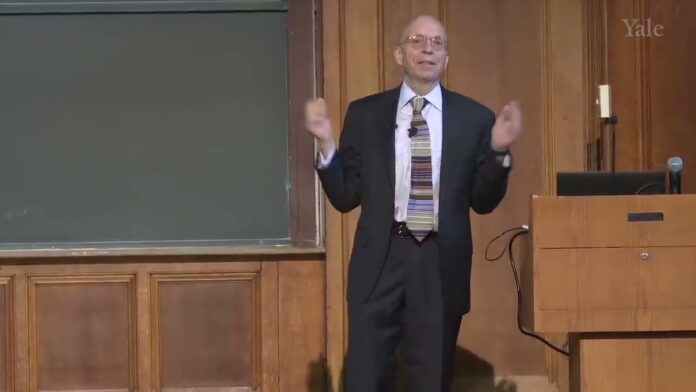Diplomacy, the art and practice of conducting negotiations between nations, has long been a cornerstone of international relations. It aims to prevent conflict, foster cooperation, and manage shared challenges. However, in a world increasingly characterized by interconnectedness, technological advancements, and a complex web of global issues, the very nature of diplomacy is evolving. This essay delves into the shifting paradigms of diplomacy, examining the challenges and opportunities of navigating this dynamic landscape.
Introduction to International Relations
International relations (IR) is a field of study that focuses on the interactions and relationships between different nations and their governments. It is a multidisciplinary subject that draws upon history, political science, economics, sociology, and other social sciences to analyze and understand the complexities of the global political landscape. In recent years, the field of IR has become more relevant than ever, as the world grapples with unprecedented challenges such as climate change, economic inequality, and international terrorism.
As the concept of diplomacy falls under the umbrella of international relations, it is essential to understand the broader context of how international relations have evolved over time and the theoretical frameworks that inform our understanding of this complex field.
History of International Relations

The origins of international relations can be traced back to ancient civilizations, where city-states would engage in trade, alliances, and conflicts with each other. However, the modern study of IR emerged during the 17th century with the emergence of nation-states and the development of international law.
The Treaty of Westphalia in 1648 marked a significant turning point in the history of IR, as it established the principles of state sovereignty and non-interference in the domestic affairs of other nations. This idea of sovereign states working together through diplomacy to maintain peace and stability has been a key aspect of international relations ever since.
Theories of International Relations

There are various theories and perspectives that attempt to explain the dynamics of international relations. Each theory provides a unique lens through which we can understand the complexities of global politics. Some of the most prominent theories include realism, liberalism, constructivism, and Marxism.
Realism, also known as political realism, is based on the idea that states are the primary actors in international relations, and their actions are driven by self-interest and the pursuit of power. This theory emphasizes the importance of military strength, alliances, and balance of power in maintaining stability in the international system.
On the other hand, liberalism emphasizes the role of institutions, international organizations, and norms in promoting cooperation between states. According to this theory, states can work together to achieve common goals and resolve conflicts through diplomatic means.
Constructivism focuses on the role of ideas, norms, and identities in shaping international relations. It argues that social interactions and shared beliefs can shape state behavior and influence the development of international norms and institutions.
Lastly, Marxism views international relations through the lens of class struggle and economic interests. It argues that the capitalist system creates unequal power dynamics between states, leading to exploitation and conflict.
Key Concepts in International Relations
To understand the complexities of international relations, there are a few key concepts that are essential to grasp. These include sovereignty, power, globalization, and interdependence.
Sovereignty refers to the independent authority of states to govern themselves without external interference. In the current globalized world, however, this concept has become increasingly blurred as states are impacted by transnational issues such as climate change and terrorism.
Power is another crucial concept in IR, and it can be understood in various forms, including military, economic, and cultural. The distribution of power among nations plays a significant role in shaping their relationships and interactions.
Globalization and interdependence have significantly impacted the study of international relations. These concepts refer to the increasing interconnectedness and interdependence of economies, cultures, and societies around the world. They have also resulted in the rise of non-state actors, such as multinational corporations and non-governmental organizations, which play a significant role in shaping global politics.
Major Players in International Relations
Traditionally, the key players in international relations included nation-states and international organizations such as the United Nations (UN), World Trade Organization (WTO), and North Atlantic Treaty Organization (NATO). However, in recent years, new players have emerged, including emerging powers such as China, India, and Brazil, as well as non-state actors like terrorist organizations, multinational corporations, and civil society groups.
The traditional power structures, dominated by a few powerful nation-states, are gradually being challenged by the rise of these new players. This shift has added further complexity to the world of diplomacy and international relations, as diverse perspectives and interests must be considered in decision-making processes.
Current Issues in International Relations
Current affairs and global challenges are directly linked to the study of international relations. Some of the most pressing issues include climate change, economic inequality, human rights, and international security.
Climate change is a global issue that requires cooperation and collaboration between nations to mitigate its effects and find solutions. The unequal distribution of wealth and resources between nations has led to economic inequalities, leading to tensions and conflicts. Human rights violations continue to occur around the world, raising questions about the role of states in protecting their citizens and promoting universal rights. Lastly, international security remains a significant concern, with terrorism, cyber attacks, and nuclear proliferation posing threats to global stability.
Future of International Relations
As we move into an increasingly interconnected and complex world, the future of international relations faces many uncertainties. However, some key trends are likely to shape the field in the coming years.
One major trend is the continued rise of emerging powers, which will lead to a more multipolar world, with more diverse actors and interests at play. This will require greater collaboration and diplomacy to address global challenges and maintain stability.
Another trend is the increasing reliance on technology, which has already transformed the way we communicate, trade, and wage war. As technology continues to advance, it will undoubtedly impact the dynamics of international relations, making it crucial for diplomats and policymakers to understand its implications.
Lastly, the role of non-state actors is also expected to grow in the future. With the rise of social media and citizen journalism, these actors have a more significant platform to influence public opinion and shape global issues. Finding ways to engage and collaborate with non-state actors will be critical for successful diplomacy in the future.
Conclusion
In conclusion, the shifting sands of diplomacy reflect the evolving nature of international relations in a world characterized by complexity and interdependence. The historical, theoretical, and practical aspects of IR provide valuable insights into navigating this dynamic landscape. As we continue to face new challenges and opportunities on the global stage, it is essential to adapt and embrace a collaborative and inclusive approach to diplomacy to ensure a peaceful and prosperous future for all nations.









